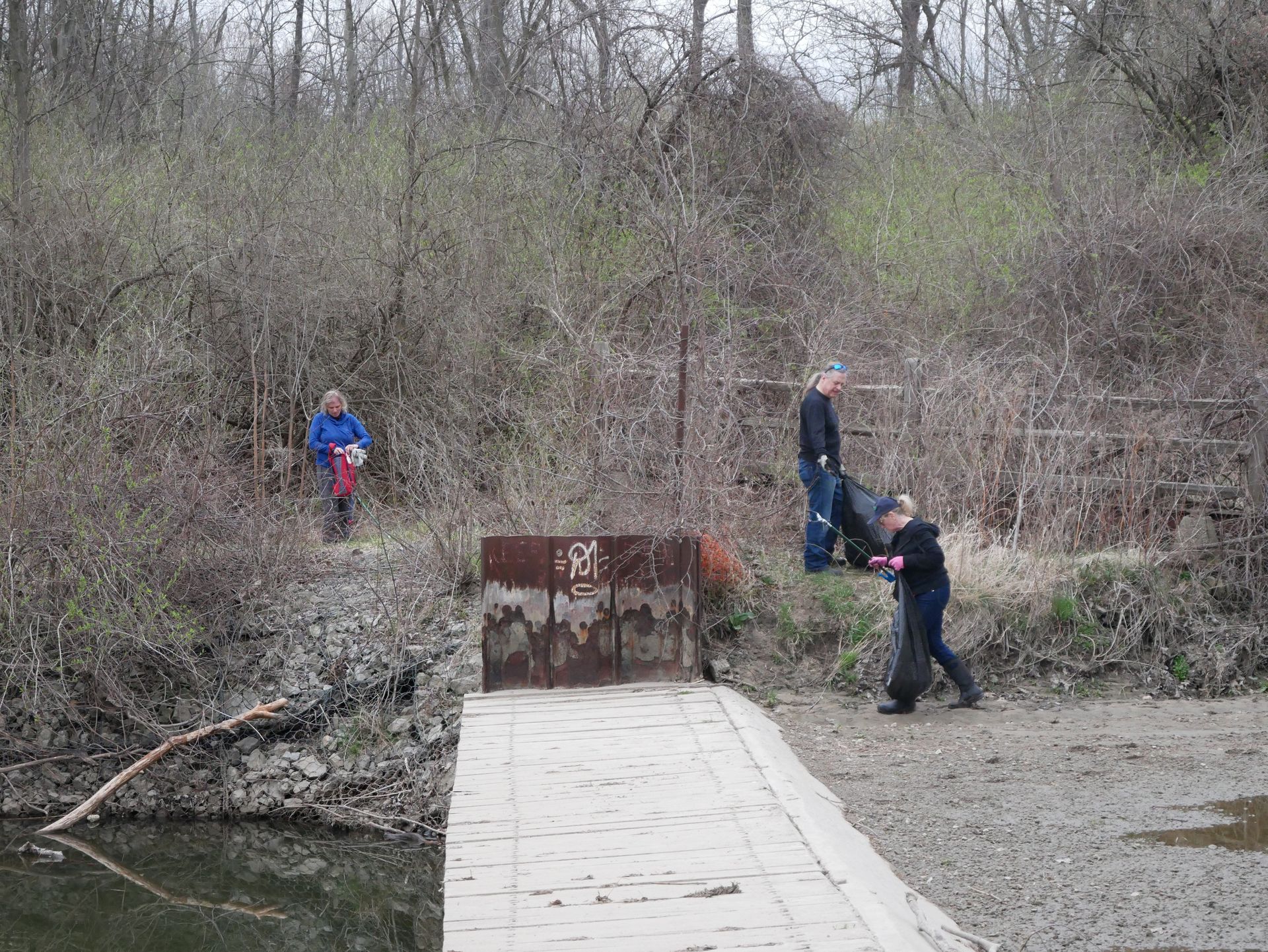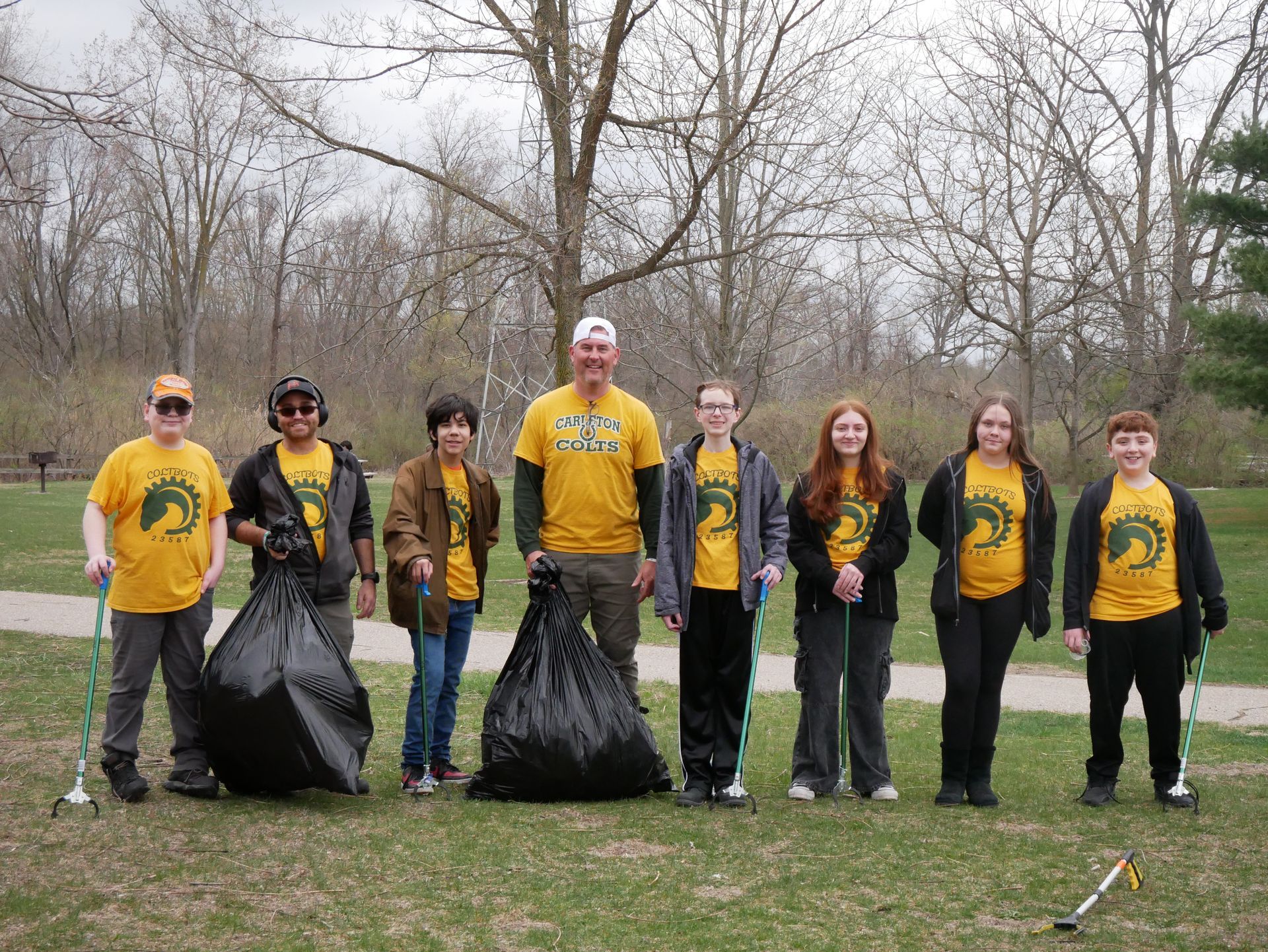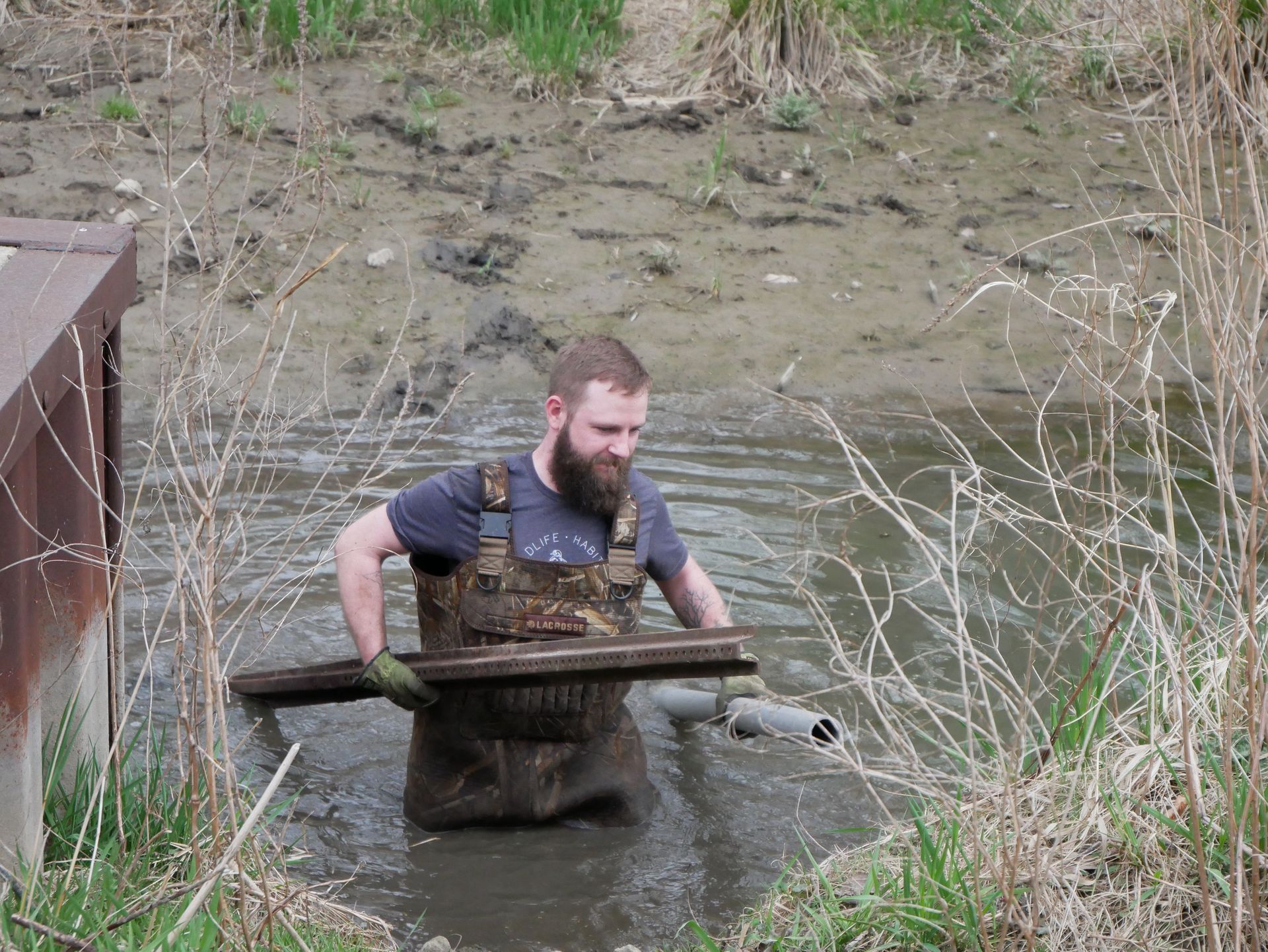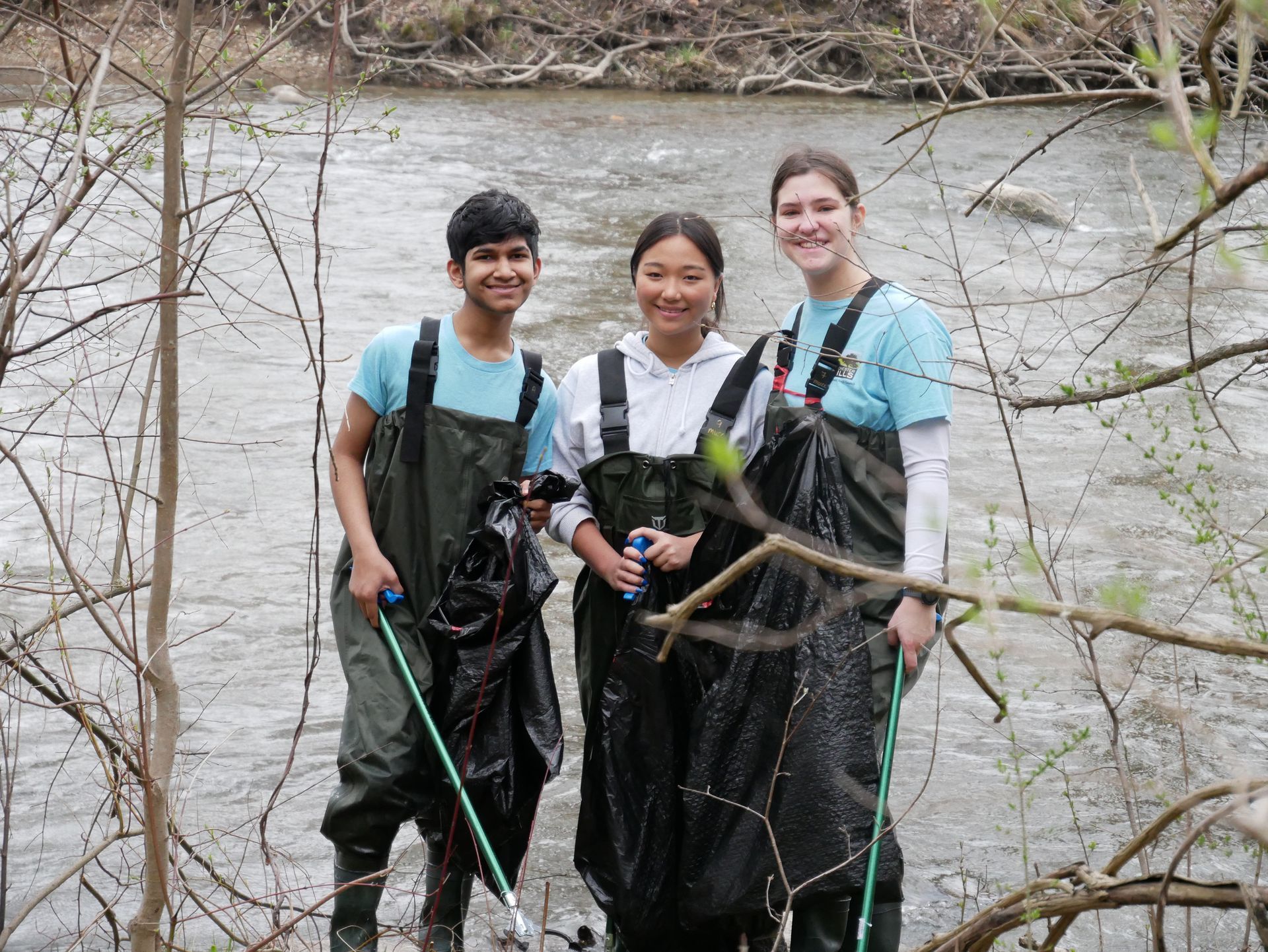MUCC celebrates a successful Clinton River Cleanup
Rochester Hills, MI — On the Ground, MUCC’s volunteer stewardship program, celebrated its 250th habitat improvement project in Oakland County this past weekend.
In partnership with Metro-West Steelheaders and the Clinton River Watershed Council, 62 volunteers removed more than 460 pounds of trash from the Clinton River watershed and surrounding areas, restoring more than 80 acres of fish and wildlife habitat.
Volunteers focused on picking up trash and other debris in the river near Yates Park and along various walking trails near the Yates Cider Mill.
Many different items were collected, including a couple of tires, fishing line, old cans, a sign, and even a car bumper.
“We definitely wanted to clean up as much trash as possible because that's going to help the watershed as a whole, and it’s going to clean up the river for both humans aesthetically, and also the animals that live in it, and create safer drinking water” said Olivia Triltsch, MUCC’s Habitat Program and Partnerships Coordinator.
This milestone project showcasing conservation efforts first-hand was recorded by Channel 7 WXYZ. Volunteers and project partners are featured in numerous video clips and photos which can be viewed on their website here.
Thank you to Metro-West Steelheaders and the Clinton River Watershed Council for their continued support and for helping us reach this accomplishment.
Special thanks to all our amazing volunteers who made this possible, and we look forward to continuing the On the Ground program for many more years and projects to come!
To stay connected with all things MUCC, follow us on Facebook, Instagram, X, and LinkedIn.
Recent Posts







